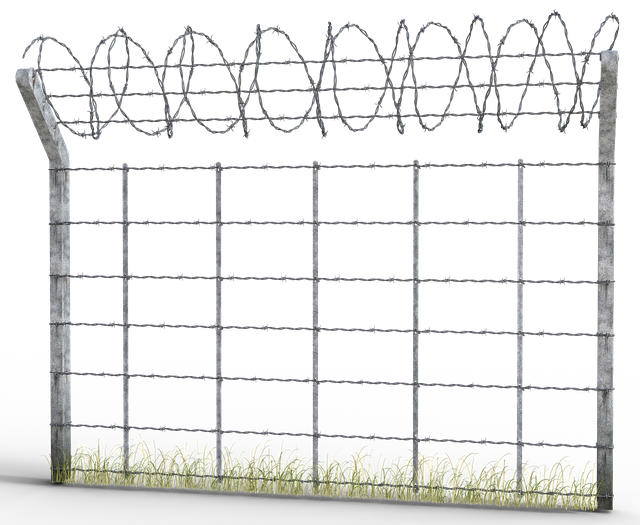In New Bedford, Massachusetts, the pursuit of sustainable living extends beyond traditional eco-initiatives; it also encompasses landscaping choices like fencing. This article explores eco-friendly fencing materials and their numerous benefits for the vibrant city. We delve into various options available in New Bedford, highlighting the advantages of sustainable materials over conventional alternatives. Additionally, we compare traditional fencing with eco-conscious choices, provide installation and maintenance insights, and discuss local availability and environmental impacts, guiding residents toward greener fencing solutions.
- Eco-Friendly Fencing Options in New Bedford
- Benefits of Sustainable Fencing Materials
- Traditional vs. Eco-Conscious Fencing
- Installation and Maintenance Considerations
- Local Availability & Environmental Impact
Eco-Friendly Fencing Options in New Bedford
In New Bedford, MA, eco-conscious homeowners and businesses are increasingly turning to sustainable fencing options that offer both visual appeal and environmental benefits. One prominent choice is recycled plastic fencing, which is durable, low-maintenance, and made from post-consumer waste. These fences not only reduce landfill waste but also resist rot, rust, and fading, making them a long-lasting solution for yards and commercial spaces alike.
Another popular option is natural, organic fencing materials like bamboo or hedge plants. Bamboo fences are both aesthetically pleasing and highly sustainable, as bamboo grows rapidly and can be harvested without damaging the environment. Live hedges offer a living, growing barrier that can help reduce noise pollution and provide habitat for local wildlife. These options align with the city’s efforts to promote green spaces and sustainable practices, contributing to New Bedford’s eco-friendly landscape.
Benefits of Sustainable Fencing Materials
In New Bedford, MA, opting for eco-friendly fencing materials offers a multitude of benefits, both aesthetically and environmentally. These sustainable options reduce carbon footprints by minimizing the use of treated wood, which often contains harmful chemicals. Instead, materials like recycled plastic, bamboo, or plant-based composites not only provide durable barriers but also contribute to a greener landscape, reducing pollution and preserving local ecosystems.
Moreover, sustainable fencing promotes biodiversity by creating habitats for local wildlife. The natural textures and diverse compositions attract birds, insects, and small animals, enhancing the overall ecological balance. These materials also require less maintenance over time, saving homeowners and businesses valuable resources and effort, while contributing to a more sustainable future for New Bedford.
Traditional vs. Eco-Conscious Fencing
In New Bedford, as across much of the nation, traditional fencing materials like wood and vinyl have long been the go-to options for homeowners and businesses. However, a growing awareness of environmental impact is driving a shift towards eco-conscious alternatives. Traditional fences often rely on resources that contribute to deforestation or emit harmful chemicals during production and disposal. In contrast, eco-friendly fencing materials offer a sustainable solution by utilizing recycled content, reducing carbon footprint, and minimizing the need for frequent replacement.
These alternative options not only benefit the environment but also provide aesthetic appeal and long-term cost savings. By choosing eco-conscious fencing, New Bedford residents can contribute to a greener community while enhancing their properties with visually appealing, durable barriers that require less maintenance over time.
Installation and Maintenance Considerations
When considering eco-friendly fencing materials, installation and maintenance should be front of mind. Opting for sustainable options doesn’t mean sacrificing durability or aesthetics; many eco-friendly fences are designed to withstand harsh weather conditions and require minimal upkeep. For example, recycled plastic fences can last for decades with proper care, which mainly involves occasional cleaning and checking for loose panels.
In New Bedford, MA, where climate conditions can vary, choosing a fencing material that aligns with local environmental factors is key. Proper installation techniques, such as ensuring a secure base and adequate post spacing, contribute to the fence’s longevity. Regular maintenance, like tightening connections and replacing any damaged sections, not only keeps your eco-friendly fence looking its best but also maximizes its environmental benefits by extending its lifespan.
Local Availability & Environmental Impact
In New Bedford, MA, eco-friendly fencing materials are becoming increasingly accessible and popular due to their local availability and positive environmental impact. These materials, such as recycled plastic, wood from sustainable sources, and organic composites, offer a viable alternative to traditional fencing options that often rely on non-renewable resources and contribute to deforestation. By opting for locally sourced eco-friendly fencing, residents can reduce their carbon footprint and support regional industries committed to sustainability.
The environmental benefits extend beyond the production process. Eco-friendly fences require less maintenance over time, reducing the use of chemical treatments and fertilizers typically needed for traditional wooden fences. Moreover, these materials are designed to withstand harsh weather conditions, ensuring longer lifespans and minimizing waste generation. This local availability and reduced environmental impact make eco-friendly fencing an attractive choice for New Bedford residents seeking both aesthetics and ecological responsibility.
